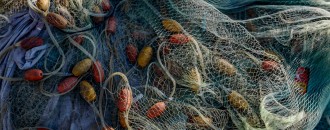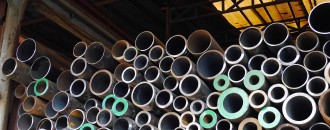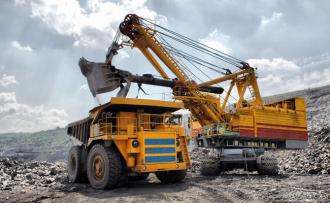
Imports of Soda Ash from Turkey and Russia-Sunset review investigation initiated.
Dated 16th April 2018 | Copy of | Anti - Dumping Investigation |

Govt imposes ADD of $2.69/kg on fishnet imports from China, Bangladesh
The Dollar Business Bureau The Government has imposed anti-dumping duty, upto $2.69 per kg, on the imports on fishing net from China and Bangladesh, in order to safeguard the domestic industry from cheap imports. Whereas, in the matter of ‘Fishing Net’ falling under tariff item 5608 11 10 of the First Schedule to the Customs Tariff Act, 1975 (51 of 1975) originating in, or exported from China PR and Bangladesh into India, the Designated Authority, has recommended imposition of definitive anti-dumping duty (ADD) on imports of the fishnet, the Finance Ministry said in a notification (No.20/2018-Customs-ADD). “The anti-dumping duty imposed under this notification shall be effective for a period of five years (unless revoked, superseded or amended earlier) from the date of publication ...

DGAD imposes definitive ADD on 47 steel products from China and 5 other countries
The Dollar Business Bureau India imposes definitive anti-dumping duty(ADD), effective for 5 years on 47 products of alloy or non-alloy steel from China PR, Japan, Korea RP, Russia, Brazil and Indonesia. The duty imposed carried a minimum price of $478/ metric tonne to a maximum amount of $561/metric tonne. The ADD would be effective from the date of imposition, April 8, 2017 as notified in the DGAD notification no- 17/2017 dated 11/05/2017. Of the total steel imported in India during 2015-16 the imports of hot rolled and cold rolled coils was 47% and with the imposition of duty it came down to 36%. Now with the latest notification of the government of extending the anti-dumping duties to hot rolled and cold rolled flat ...

A paradoxical 2017 awaits us!
On one hand, we lament over India’s reduced exports, and on the other, we see no 'social justice' in giving our exporters enough to even cover their input costs in the form of remission and incentive schemes. Steven Philip Warner | January 2017 Issue | The Dollar Business When 2016 began, the world trade community had just braved a cold and icy year. TDB's January 2016 issue titled, ‘2016: Are we regressing?’ summed the low-key expectations from 2016 quite well. Based on a comprehensive consideration of various past situations and expected scenarios (simulative analyses), TDB Intelligence Unit had then made a few forecasts about what the year ahead would mean for foreign trade and policy. They were predictions however, and most of which ...

Government intervention turns concern for mining industry
Sai Nikesh | The Dollar Business The year 2014 was a tough fight for the global mining industry with commodity prices down, short-term volatility increasing and initial scorecard for the top 40 global mining companies was mixed, said a PricewaterhouseCoopers’ (PwC) review report on global trends in the mining industry- Mine 2015. Now, the gloves are off for the mining industry with widespread government intervention, internal industry conflicts and rising shareholder activism, noted the report. Responding to above statement in the Indian context, Basant Poddar, Vice-president of Federation of Indian Mineral Industries (FIMI), MD, Mineral Enterprises Ltd., told The Dollar Business that ‘mining industry in India is facing severe challenges due to higher political intervention’. To a question on ‘whether government ...

India challenges WTO ruling over US countervailing duties on steel
The Dollar Business Bureau | @TheDollarBiz Growing steel imports by US threaten the steel sector that supports over half a million jobs in US India has challenged the recent World Trade Organisation (WTO) ruling on countervailing duties (CVD) by USA on certain steel imports from Indian companies which were imposed due to alleged government support to the steel industry in India. India had first appealed against imposition of CVD by USA on hot rolled carbon steel flat products from India in 2012. After two years, in its July 2014 ruling, the WTO accepted a small number of claims by India, but dismissed the remaining claims. According to the Indian Commerce Ministry, the WTO Panel accepted that combining non-subsidized imports with subsidized ...

